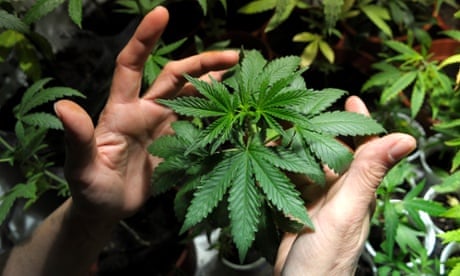In his final state of the city address as Mayor of New York, Michael Bloomberg made the welcome announcement that anyone caught in possession of marijuana would no longer have to spend a night in jail. Effective next month, anyone who is arrested for marijuana possession will still be taken to the police station, fingerprinted and so on, but if there are no pending warrants, they will be released with a summons to appear in court. This is a small step in the right direction, but it does not go remotely far enough to undo the damage that has been inflicted upon poor and minority communities who have born the brunt of what activists call a "marijuana arrest crusade" that has flourished during the mayor's reign.
In 2008, the New York Civil Liberties Union (NYCLU) compiled a report (pdf) on the unprecedented eleven-fold increase in misdemeanor marijuana arrests in the city that began during Mayor Rudy Guiliani's last term in office and continued with relish under Mayor Bloomberg. Since this "crusade" began, the number of marijuana arrests have increased from approximately 6000 per year in 1995 to nearly 40,000 in 2007.
It will come as no surprise to anyone familiar with the way of things
in New York city that the vast majority of those arrested and jailed
for smoking pot were blacks and hispanics, despite the fact that
studies consistently show that white people use drugs like marijuana
at much higher rates. It has been the constant cry of activists that
white people enjoy a certain level of immunity from prosecution for
minor drug offenses, while black and brown people do not. As Donna
Lieberman, the Executive Director of the NYCLU put it: "What this
amounts to is a two-tiered system of justice". A democracy for some, a
police state for others.
To compound the irony, the mayor admitted in 2002 that he was a
pot smoker himself. When asked by the National Organization for the
Reform of Marijuana Laws Foundation if he had ever tried the drug, he
responded: "You bet I did. And I enjoyed it." Needless to say, he
regretted making these remarks almost immediately afterwards. But
regrets aside, he remained firm in his view that marijuana should not
be decriminalized and that the laws that exist should be enforced. It
may not have been his intention that it would be poor black and brown
people who felt the brunt of this law enforcement zeal rather than
rich white people like himself, but that is how things have panned out.
As the NYCLU's report details, between 1997 and 2006, 353,000 New
Yorkers were arrested for possession of small amounts of marijuana.
All of these people were handcuffed, taken to the police station,
fingerprinted and most of them spent a night in jail. Worse still,
they have had to deal with the consequences of having a criminal
record. A large majority – 85% – of those arrested were either black or hispanic. Only 15% were white.
The high rate of marijuana arrests are linked in part to the NYPD's
controversial "stop, question and frisk" policy that disproportionately
impacts minorities. I spoke with Patrick Timlin, the former Deputy
Commissioner of Operations for the NYPD, who gave me the police
department's perspective on this issue. He explained that the NYPD's
proactive policing efforts mean that cops end up flooding high crime
areas where most of the violence and homicides occur.
"For whatever socio-economic reasons, these high crime areas tend to have mostly minority residents and so more minorities end up coming into contact with police."
Timlin went on to say that most police professionals agree that people using marijuana are not a threat to public safety and that there have
been efforts all the way up the chain in the NYPD to stem the tide of
arrests. In 2011, Ray Kelly, New York's police commissioner, sent a
memo to his commanders reminding them that officers were not to arrest people for marijuana possession unless it is in public view. Under
current law, possession of 25 grams of marijuana or less is a violation
and only becomes a misdemeanor if it is "burning or in public view".
However, what has been happening is that when a cop stops someone,
they generally ask them to empty their pockets. If they happen to be
carrying marijuana, it then comes into public view. So thanks to
police action, a person who would have only been guilty of a violation
is suddenly a criminal.
Since Kelly's memo there has been a small dip in the number of arrests,
but when it comes to marijuana possession, New Yorkers are still in a
"don't ask don't tell" kind of limbo. Although the authorities seem
to pretty much agree, at least when it comes to their own behavior,
that pot smoking isn't that big of a deal, there is still is reluctance to decriminalize its use entirely. Last year, Governor Andrew Cuomo proposed legislation that would have cut the penalty for public possession to a violation punishable by a fine up to $100. Although the measure was endorsed by the police commissioner, as well as many state democrats, it was stalled in the state senate.
For now we have to make do with Bloomberg's compromise measure,
which is better than nothing, but still means that thousands of poor
and minority New Yorkers will find themselves needlessly tangled up in
the criminal justice system. There is movement on the issue and that
is something. But one can't help feeling that if the numbers were
reversed and 85% of the people arrested and jailed for smoking pot
were white and affluent, this matter would have been settled a long
time ago.
